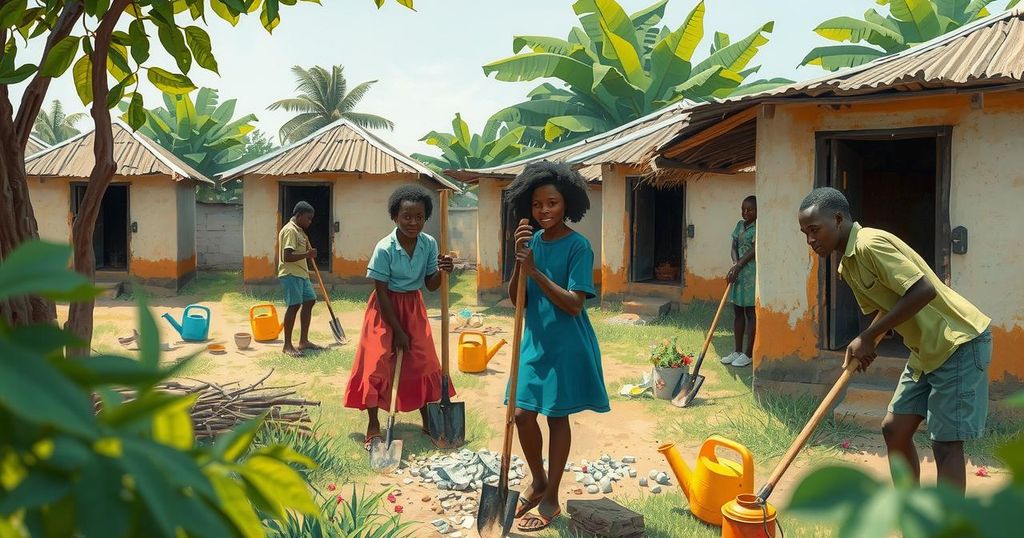Youth Empowering Healing Efforts in South Sudan’s Communities

Youth leaders in South Sudan work tirelessly to heal war-torn communities, focusing on peacebuilding, economic recovery, and bridging divides. Despite challenges like gang violence and ethnic tensions, figures like Lunia Okuch and Nyawar Monykuany represent hope for a peaceful future. Economic initiatives also play a vital role in rebuilding lives amidst ongoing insecurities.
In South Sudan, amidst a backdrop of continuous conflict, young leaders are actively working to foster healing within their communities. Lunia Okuch, a youth peace ambassador from Malakal, emphasizes the importance of moving forward, stating, “The past is already the past. We need to open a new chapter.” The youth generation, shaped by decades of violence, is determined to build a peaceful future.
The journey towards peace has been fraught with challenges, especially following South Sudan’s independence in 2011 and the subsequent civil war in 2013. Today, the obstacles to sustainable peace have become localized, with issues like gang violence and cattle raiding exacerbating tensions. Akol, a 22-year-old gang member, notes, “If I had a job, I would not be in a gang,” highlighting the economic despair driving many young men towards criminal activities.
Gang life often reflects the instability faced by South Sudan’s youth. However, there exists a hopeful counter-narrative, with figures like Okuch bridging community divides. Women, including Nyawar Monykuany, also play vital roles in peacebuilding. Monykuany states, “Women can be peace ambassadors,” as she works to unite tribes through dialogue, employing her fluency in local languages to foster trust.
Economic recovery remains crucial to peace efforts. Joel John, a builder in Yei, attributes his livelihood to vocational training programs that have enabled him to restore his life after displacement. He voiced concern over the threat that rural insecurity poses to continuing progress, underlining the need for stability.
While the revitalization of the peace agreement in 2018 marked a significant step, underlying issues such as ethnic conflict and land disputes persist. Organizations like the International Organization for Migration (IOM) are crucial in facilitating dialogue and promoting grassroots peace initiatives. Ultimately, the shifting dynamics of peace in South Sudan are being shaped by the community’s resilient efforts toward understanding and collaboration.
In conclusion, the youth of South Sudan are not only recognizing the challenges imposed by their tumultuous past but are also actively participating in reshaping their nation’s future. Through the collaborative efforts of young leaders and women, alongside supportive programs, hope is emerging for sustained peace and economic recovery. However, ongoing issues such as gang violence, ethnic tensions, and insecurity in rural areas must be addressed to secure a stable and prosperous nation.
Original Source: www.aljazeera.com








